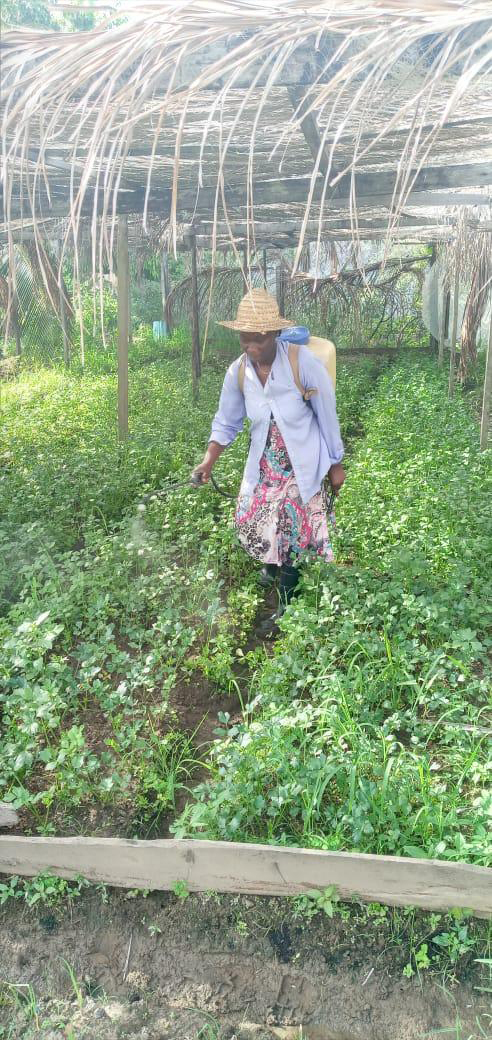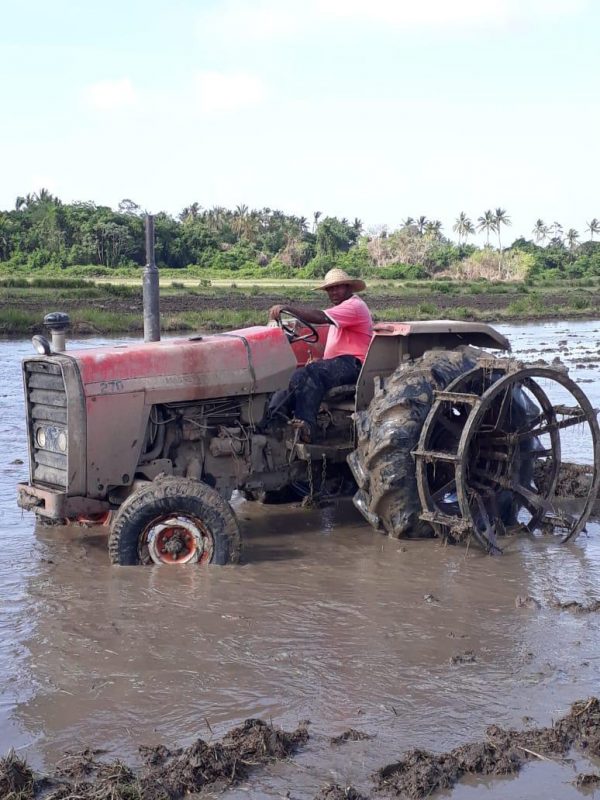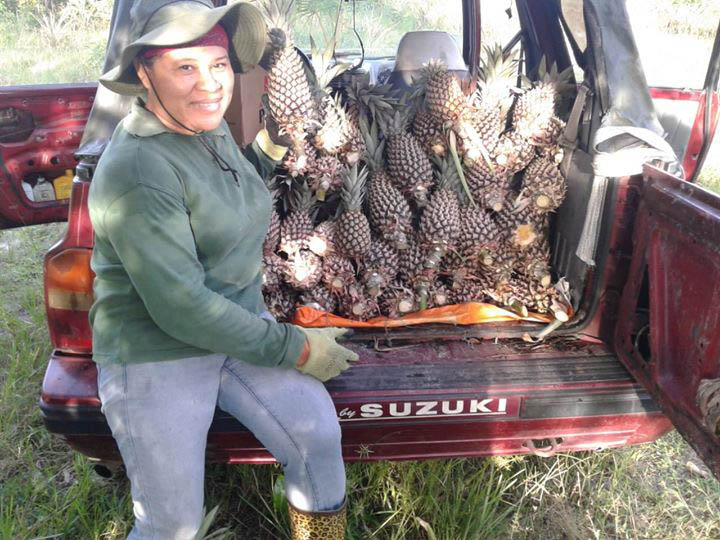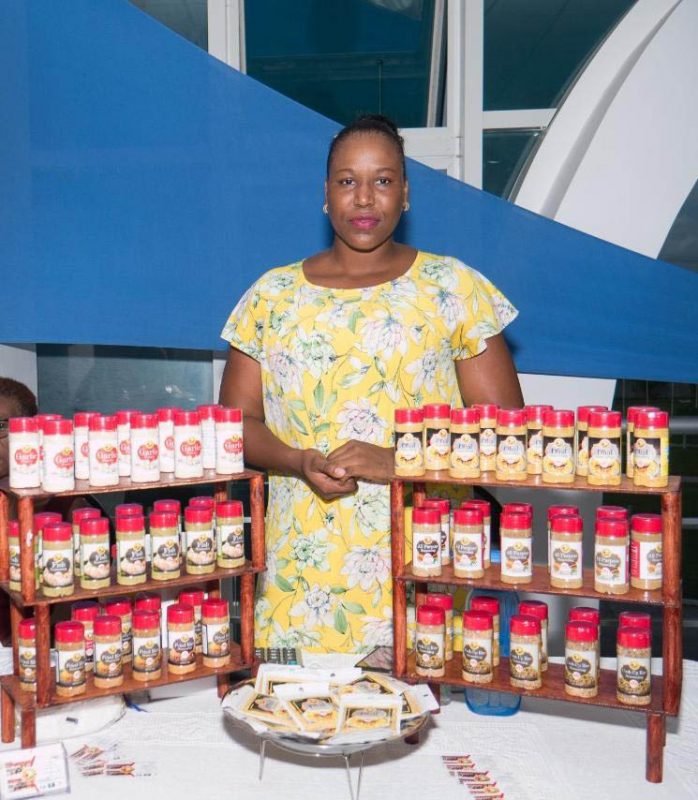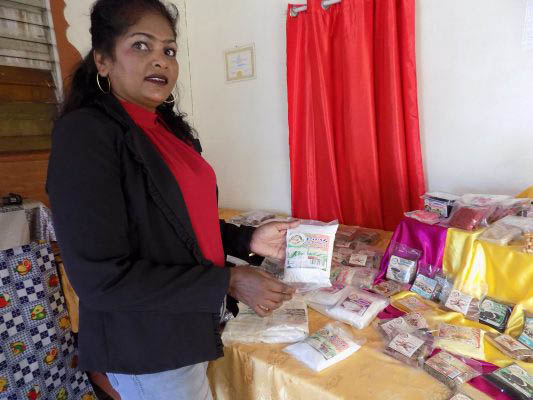Whereas unlike in other countries, some even here in the Caribbean, where the onset of COVID-19 has placed the issue of food security close to the top of the national agenda, this thankfully has not been the case in Guyana. While the prices of some farm produce customarily associated with treating minor ailments (lemons and ginger come readily to mind) have been fluctuating in price, fresh fruit and vegetables, these days scarce (and threatening to become even scarcer) in many countries are available in reassuring abundance in local markets. And as if to underscore the point about our status as the region’s bread basket, Guyana continues to export fruit and vegetables to other parts of the region. Meanwhile, across the capital and in other coastal communities, vendors have ‘thrown up’ temporary stalls at strategic points to save consumers having to trek to the municipal markets where, social distancing restraints notwithstanding, shopping has remained worryingly, a congested affair.
This, however is not to say that businesses specialising in various types of foods, including fresh fruit and vegetables and agro-produce, are not ‘feeling the pinch’. While ever mindful of the challenges of social distancing, the Stabroek Business has been able to engage some agro-processors and farmers whom we found ready and willing to speak to us on what they all say is a new and challenging experience.
The advent of COVID-19 has coincided with the burgeoning of the urban agro-processing sector, the phenomenal improvement in food preparation techniques attended by significant improvements in packaging and labelling. Over the past three years agro-processors had become ‘spoilt’ by consumer attention arising out of the marketing boosts from which they had benefitted through avenues like the UncappeD public display events staged by the Guyana Manufacturing & Services Association (GMSA) in collaboration with the Ministry of Business and the various Farmers’ Markets organised by the Guyana Marketing Corporation (GMC).
None of this, however, has spared our farmers and agro-processors some of the ill effects of COVID-19. They have, it seems, had to take their own hard knocks. Not that their heads are drooping and their spirits sinking, but those that we have been able to speak with in recent weeks have made no secret of the fact that their fragile enterprises have been rocked by the pandemic. And while, having toiled to build what are still, in many instances, small and unsettled businesses from the ground up, they say that they intend to ‘stay the course,’ while adamant that if ever there was a point at which some measure of state intervention is needed, it is now.
For the moment at least, the agro-processing venture which Oscar and Michelle Richmond had created and through which they have placed a variety of products including casareep, cassava bread, coconut water, plantain chips, porridge mix and dried carambola on the market, has come to a shuddering halt. These days they focus on marketing the fresh produce yielded from their farm at Jacklow in the Pomeroon River. Michelle says that her main markets were the Guyana School of Agriculture, the Guyana Shop and the occasional Farmers’ Markets. However, COVID19 and its impact has closed those avenues. Whereas, Michelle says, prior to the advent of COVID-19 their income hovered around $300,000 per week, it has more recently, shrunk to around $50,000 per week. On account of the complete disappearance of their agro-produce market and the decreased demand for farm produce the Richmonds have had to release the two employees who were overseeing a section of their fifty-acre farm. Their bankers have allowed a six-month grace period during which loan repayments have been suspended so that one of the Richmonds’ key concerns these days is with just when COVID-19 will end. The Richmonds are under no illusions about the fact that they may be in a fight for their economic lives. Reduced demand for their agro-produce has impacted
liquidity and they are looking to the state to step in.
It is the same with several other farmers and agro-processors with whom the Stabroek Business spoke over the past three weeks. They have persisted up until now, they say, because there are no options open to them, having poured both their physical and emotional energy as well as their financial resources into their current business enterprises.
Over the past two months the Richmonds have made a strategic shift in their operations, clearing a two-acre plot on their farm which is now dedicated to the cultivation of watermelon and plantains. It is an initiative that they have undertaken based on an ‘agreement’ with a wholesaler who plies his trade at the Charity Market. Meanwhile, they are also interested in securing a market for their current crop of avocado which is on offer at a wholesale price of $160 each.
Farmer Brian Albert of Philippi, Corentyne, is as well, not indifferent to the challenges that COVID-19 has brought to the farming sector. A livestock and cash crop farmer, Brian is currently preoccupied with maximising his returns by finding his way around the middlemen, whom he says, are invariably inclined to drive “hard bargains.” Over the past two months he has taken a decision to cease the cultivation of cash crops for the time being, largely on account of the frequent complaints by the middlemen that these are not being bought in the markets in significant volumes these days. Customarily, he plants watermelon, celery, sweet pepper, cabbage and tomato. COVID-19 he says, has not, at least up until now, impacted on his farming operations since not only does he not have any outstanding loans but his overhead expenses are offset by his thriving kitchen garden and the returns from his livestock sales are sufficient to sustain his family. When Stabroek Business spoke with Brian he told us that he was in the process of preparing “beds” in preparation for resuming cultivation shortly.
Cash crop farmer and vendor Andrea Seechun, has not been that lucky. Her Adventure, Corentyne, farming operation has been hard hit by COVID-19. Prices have slipped so badly that recently she made the decision to leave her entire current crop of fruit on the trees at her farm. Prices were not even worth the cost of harvesting though she has made exceptions for celery and lettuce which are ‘good sellers’. Part of the challenge, she says, reposes in the sharp reduction in the volume of customers arising out of the social distancing measures presently in force. At the Port Mourant Market where Andrea sells some of her produce, the social distancing ‘rules’ arising out of the COVID-19 pandemic has reduced the number of shoppers significantly.
But Mrs Seechun’s woes do not stop there. Recently, she lost an entire 25-acre rice crop on account of a lack of water for irrigation which resulted in a substandard paddy crop. Accordingly, she is unable to begin May-June cultivation due to a lack of funds.
Agro-produce manufactured by Marcia Gonzales has also been negatively impacted by COVID-19. Much of her product – cassava bread and casareep – is marketed through the GMC’s Guyana Shop though with the changes in opening hours she is now limited to calling up customers and to persons in the Soesdyke/Linden area where she lives (the GMC has confirmed for the Stabroek Business that it is concerned over possible product spoilage resulting from the sharp COVID-19 constraints including reduced levels of patronage).
The drastic reduction in Marcia’s commercial fortunes is reflected in the fact that whereas, prior to the onset of COVID-19, her cassava bread and other products required one thousand pounds of cassava monthly, these days the volumes have been reduced to between three and four hundred pounds. She disclosed that while she had set an earlier timeline for introducing the market to a new variety of cassava bread, she has had to put that project on hold in view of market uncertainties. If she is comforted by the fact that her enterprise is currently debt-free she wished that she was trading normally, though she says that she is using the present ‘down time’ to review her business plans and upgrade her production facilities.
Sursattie Paul, ‘The Spice Lady’, says her Fresh Packers brand is also experiencing a significant drop in sales. Over the past six weeks the three petrol stations and the Guyana Shop – some of her key outlets, have made no purchases from her. That leaves Bounty Supermarkets, Totaram on the West Coast Demerara and DSL as her main buyers. Significantly reduced sales, she says, means that she is now just able to ‘keep her head above water’. With the weight of an outstanding car loan ‘around her neck,’ she is looking forward to seeing the back of COVID-19.
Just over three months ago, the Proprietor of Dickah’s Spices, Rodika De Freitas was basking in the accolades being bestowed on her after the Small Business Bureau, at its February 2020 Awards Ceremony had identified her enterprise as one of the standout agro-processing small businesses of 2019. Last week, the usually upbeat young woman was telling the Stabroek Business that in recent weeks, her sales had dropped by at least fifty per cent. Up until then her significant investments in creative, high-quality packaging had won her both accolades and accelerated sales and had made her one of the standout display stalls at local product display events. More than that, Rodika had teamed up with another local company, M.H. Designs (hair accessories), to introduce a home delivery service which she said had added to her customer appeal.
COVID-19 and the attendant fall in sales has meant that she too, has had let her two employees go. There have been other setbacks too… like the fact that she has had to shelve, for the time being, plans to introduce additional varieties of spices on the market. This newspaper’s recent visit to The Guyana Shop bared the reality of a decline in patronage and the near absence of some brands from the shelves. More than that, the customary hustle and bustle of enterprising agro-processors seeking to have their products get the attention of the market has waned, as increasingly, attention has shifted to COVID-19 and its constraints. What all of our interviewees have been hinting to this newspaper, however, is that having done their bit to raise the profile of locally produced agro-produce, they will be looking for a payback from the state through various forms of support that will get them back on their feet again.
